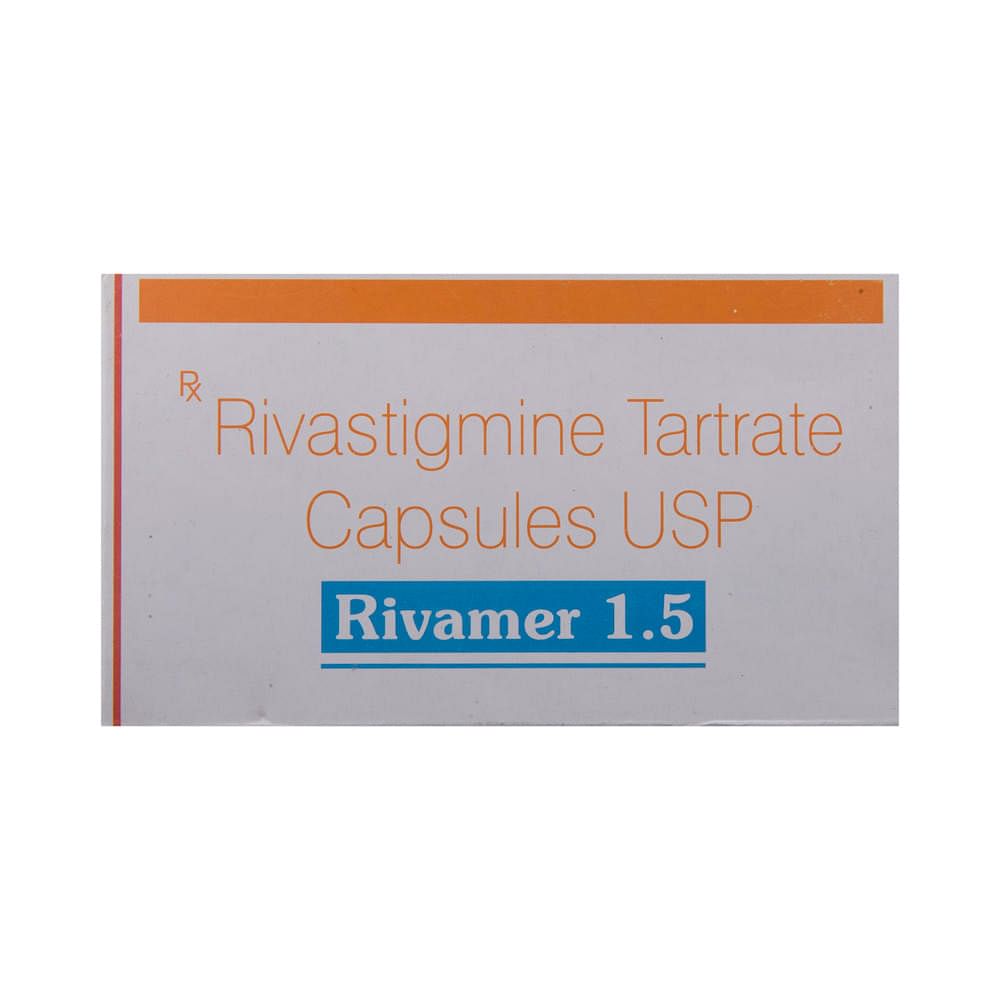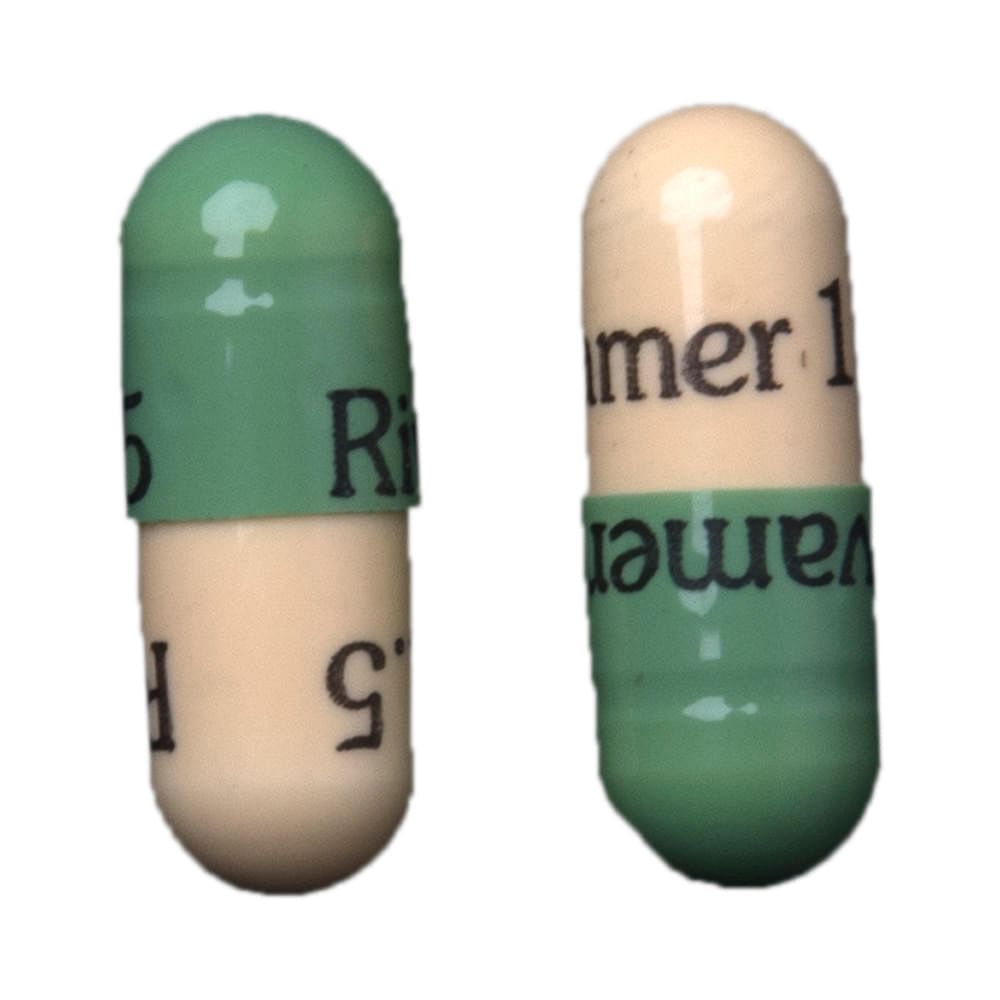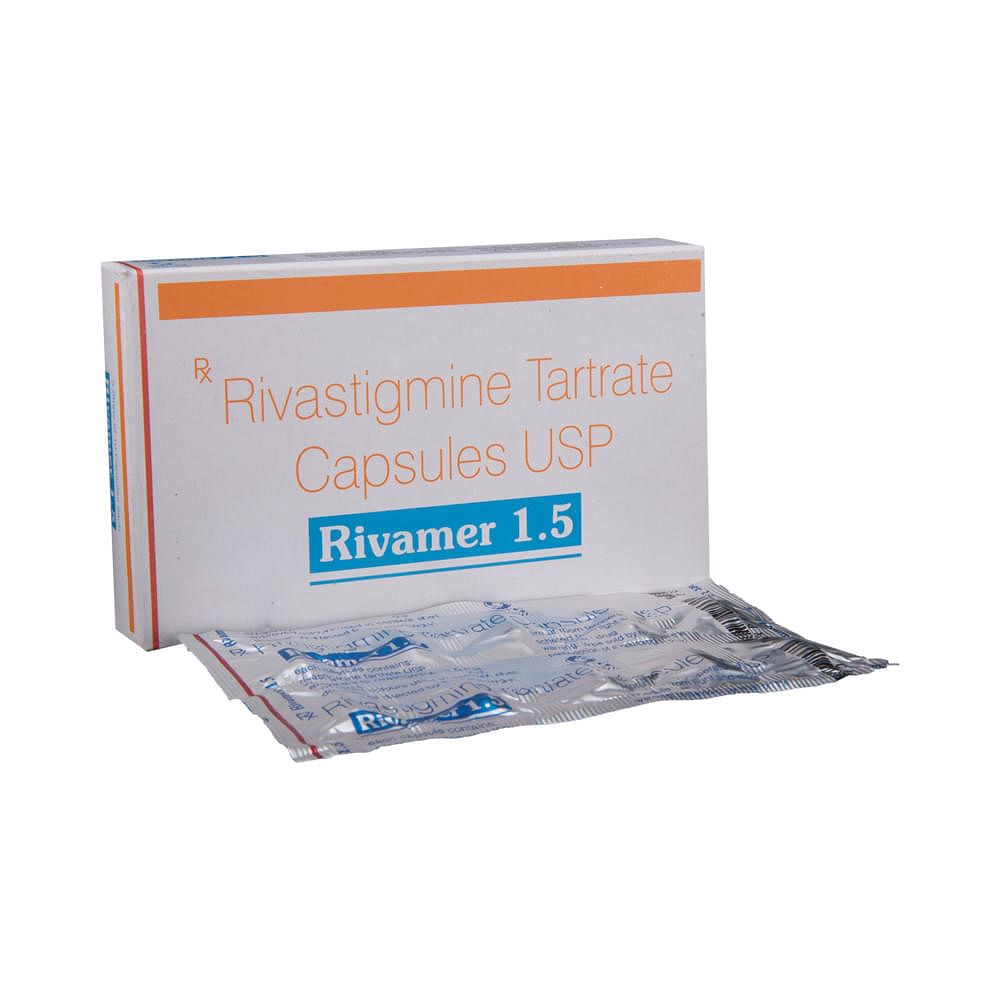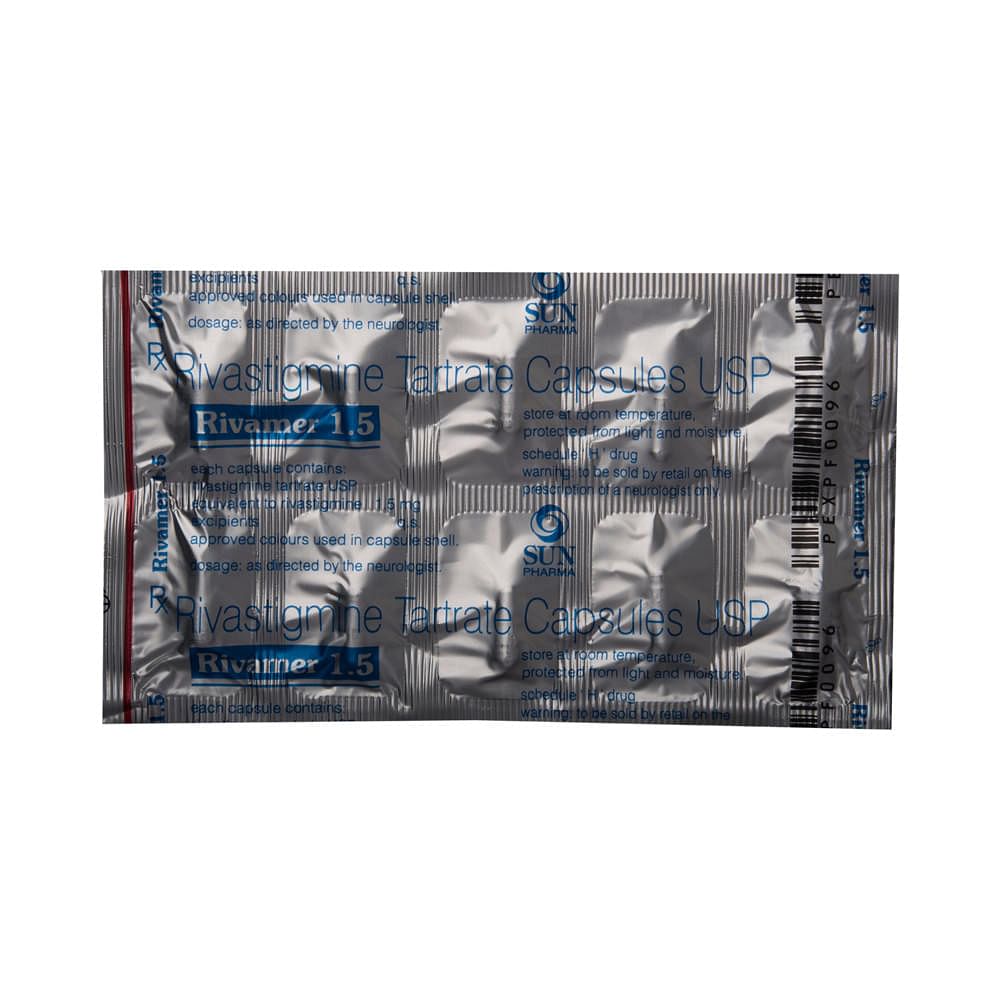




Rivamer 1.5 Capsule
Manufacturer
Sun Pharmaceutical Industries Ltd
Salt Composition
Rivastigmine (1.5mg)
Key Information
Short Description
Rivamer 1.5 Capsule is used to treat mild to moderate dementia in Alzheimer's disease, a progressive illness that gradually affects memory and thinking.
Dosage Form
Capsule
Introduction
Rivamer 1.5 Capsule is used to treat mild to moderate dementia in Alzheimer's disease, a progressive illness that gradually affects memory and thinking. It is also used for dementia-associated Parkinson's disease. It does not cure these illnesses but may help improve memory, awareness, and other symptoms.
Directions for Use
Take this medicine in the dose and duration as advised by your doctor. Rivamer 1.5 Capsule is to be taken with food.
Safety Information
Side Effects
It may cause diarrhea, nausea, and vomiting. Drink plenty of fluids to keep yourself hydrated while taking Rivamer 1.5 Capsule.
Alcohol Warning
It is not known whether it is safe to consume alcohol with Rivamer 1.5 Capsule. Please consult your doctor.
Breastfeeding Warning
Rivamer 1.5 Capsule is probably unsafe to use during breastfeeding. Limited human data suggests that the drug may pass into the breastmilk and harm the baby.
Pregnancy Warning
Rivamer 1.5 Capsule is unsafe to use during pregnancy as there is definite evidence of risk to the developing baby. However, the doctor may rarely prescribe it in some life-threatening situations if the benefits are more than the potential risks. Please consult your doctor.
Interacting Medicines
Atropine Camylofin Hyoscine butylbromide Otilonium Bromide
How it works
Memory loss in Alzheimer's disease occurs due to disturbances of signal transmission in the brain. Rivamer 1.5 Capsule is a cholinesterase inhibitor. It works by increasing the levels of a chemical messenger (acetylcholine) involved in transmission of nerve signals. This improves memory and thinking.
Quick Tips
You have been prescribed Rivamer 1.5 Capsule to slow down the progression of Alzheimer's disease. It does not cure Alzheimer's disease but may help improve brain function and ability to do daily activities. It may cause diarrhea, nausea, and vomiting. Drink plenty of fluids to keep yourself hydrated while taking Rivamer 1.5 Capsule. Do not drive or do anything that requires mental focus until you know how Rivamer 1.5 Capsule affects you. Be cautious while taking this medicine if you suffer from peptic ulcer as it may cause vomiting, stomach bleeding, stomach pain, or discomfort.
Related Medicines
Frequently asked questions
How long does Rivamer 1.5 Capsule take to work?
Rivamer 1.5 Capsule may take up to 12 weeks to start showing its effect. The response to the medicine can vary from person to person. It is essential to assess the clinical benefits of Rivamer 1.5 Capsule regularly. If, after 12 weeks of treatment, the symptoms do not improve, it is recommended to consult your doctor and discontinue the medication.
How should Rivamer 1.5 Capsule be taken?
Always take Rivamer 1.5 Capsule as directed by your doctor. Typically, it is prescribed to be taken twice a day, in the morning and evening, with food. Swallow the whole capsule with water, and do not open or crush it. If you are unsure about the dosage or administration, consult your doctor or pharmacist.
Is it okay to take antacids while taking Rivamer 1.5 Capsule?
Yes, antacids can be taken while taking Rivamer 1.5 Capsule, as they do not interfere with its working. Additionally, Rivamer 1.5 Capsule may cause increased acid secretion in the stomach in some patients. Your doctor may prescribe an antacid to alleviate this acidity.
What will happen if I take more than the recommended doses of Rivamer 1.5 Capsule?
Taking more than the recommended doses of Rivamer 1.5 Capsule may cause diarrhea, abdominal pain, dizziness, tremor, headache, sleepiness, hallucinations, and malaise. Higher doses may also lead to confusion, increased sweating, and an increase in blood pressure. If you experience any of these symptoms or suspect an overdose, seek immediate medical attention.
Does Rivamer 1.5 Capsule cause drowsiness?
Yes, Rivamer 1.5 Capsule can cause drowsiness or sleepiness, especially at the start of treatment or when increasing the dose. If you feel dizzy or sleepy, do not drive, use machines, or perform any tasks that require your attention. If dizziness persists and bothers you, consult your doctor.
Can I stop taking Rivamer 1.5 Capsule?
Do not stop or change the dose of Rivamer 1.5 Capsule without consulting your doctor. However, if treatment is interrupted for more than three days, do not continue the medicine without consulting your doctor. The doctor will re-initiate the treatment with a low dose twice a day, and the dose can then be increased gradually as was done previously.
Can Rivamer 1.5 Capsule cause hallucinations?
Yes, Rivamer 1.5 Capsule can cause hallucinations, although this is a rare occurrence. Hallucinations may usually occur shortly after a dose increase. If you experience any unusual symptoms or do not feel well, consult your doctor.



